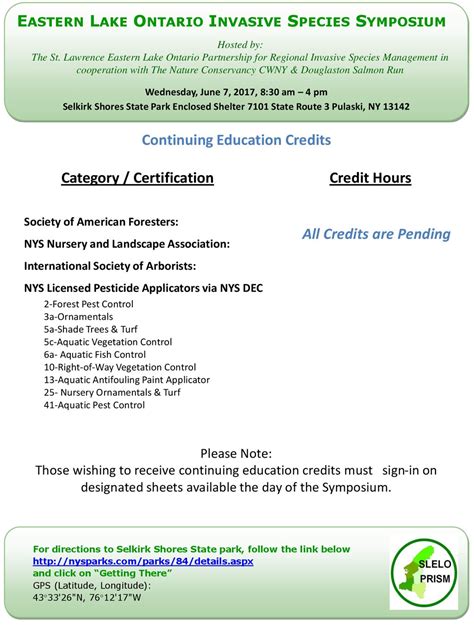In New York, pesticide applicators are required to obtain certification to ensure they are aware of the safe handling, use, and disposal of pesticides. The New York State Department of Environmental Conservation (DEC) regulates pesticide applicator certification and training programs. In this article, we will discuss the NY pesticide applicator training and credits required to get certified.

Why is Certification Important?
Certification is essential for pesticide applicators in New York as it demonstrates their knowledge and skills in handling and applying pesticides safely and effectively. The certification program aims to reduce the risks associated with pesticide use, such as environmental contamination and human exposure.
Benefits of Certification
Certification benefits pesticide applicators in several ways:
- Enhances their professional reputation and credibility
- Increases job opportunities and career advancement
- Demonstrates compliance with state regulations and laws
- Provides access to restricted-use pesticides
- Reduces the risk of fines and penalties for non-compliance
NY Pesticide Applicator Training and Credits
To get certified, pesticide applicators must complete a training program approved by the DEC. The training program covers topics such as:
- Pesticide safety and handling
- Pesticide application techniques
- Integrated pest management (IPM)
- Environmental protection
- Regulatory requirements
The training program consists of a minimum of 30 hours of instruction, including both classroom and hands-on training. Applicators must also complete a certification exam to demonstrate their knowledge and skills.
Certification Categories
The DEC offers several certification categories for pesticide applicators, including:
- Private Applicator: For applicators who apply pesticides on their own property or on property owned by their employer.
- Commercial Applicator: For applicators who apply pesticides for hire.
- Public Health Applicator: For applicators who apply pesticides for public health purposes, such as mosquito control.
Recertification Requirements
Certified pesticide applicators must complete recertification requirements every five years to maintain their certification. Recertification requirements include:
- Completing a minimum of 30 hours of continuing education credits
- Passing a recertification exam

Continuing Education Credits
Continuing education credits are required for recertification and can be obtained through various sources, including:
- DEC-approved training programs
- National Association of State Departments of Agriculture (NASDA) accredited courses
- Professional organization conferences and workshops
Applicators can earn credits in various categories, including:
- Core credits: Required for all certification categories
- Category-specific credits: Required for specific certification categories
Conclusion
In conclusion, NY pesticide applicator training and credits are essential for getting certified and maintaining certification. By completing a training program and passing a certification exam, applicators demonstrate their knowledge and skills in handling and applying pesticides safely and effectively.
By staying up-to-date with recertification requirements and continuing education credits, applicators can maintain their certification and stay compliant with state regulations.
We invite you to comment, share this article, or ask any questions you may have about NY pesticide applicator training and credits.



What is the purpose of NY pesticide applicator training and credits?
+The purpose of NY pesticide applicator training and credits is to ensure that pesticide applicators have the knowledge and skills necessary to handle and apply pesticides safely and effectively.
How do I get certified as a pesticide applicator in New York?
+To get certified, you must complete a training program approved by the DEC and pass a certification exam.
What are the recertification requirements for pesticide applicators in New York?
+Recertification requirements include completing a minimum of 30 hours of continuing education credits and passing a recertification exam every five years.
